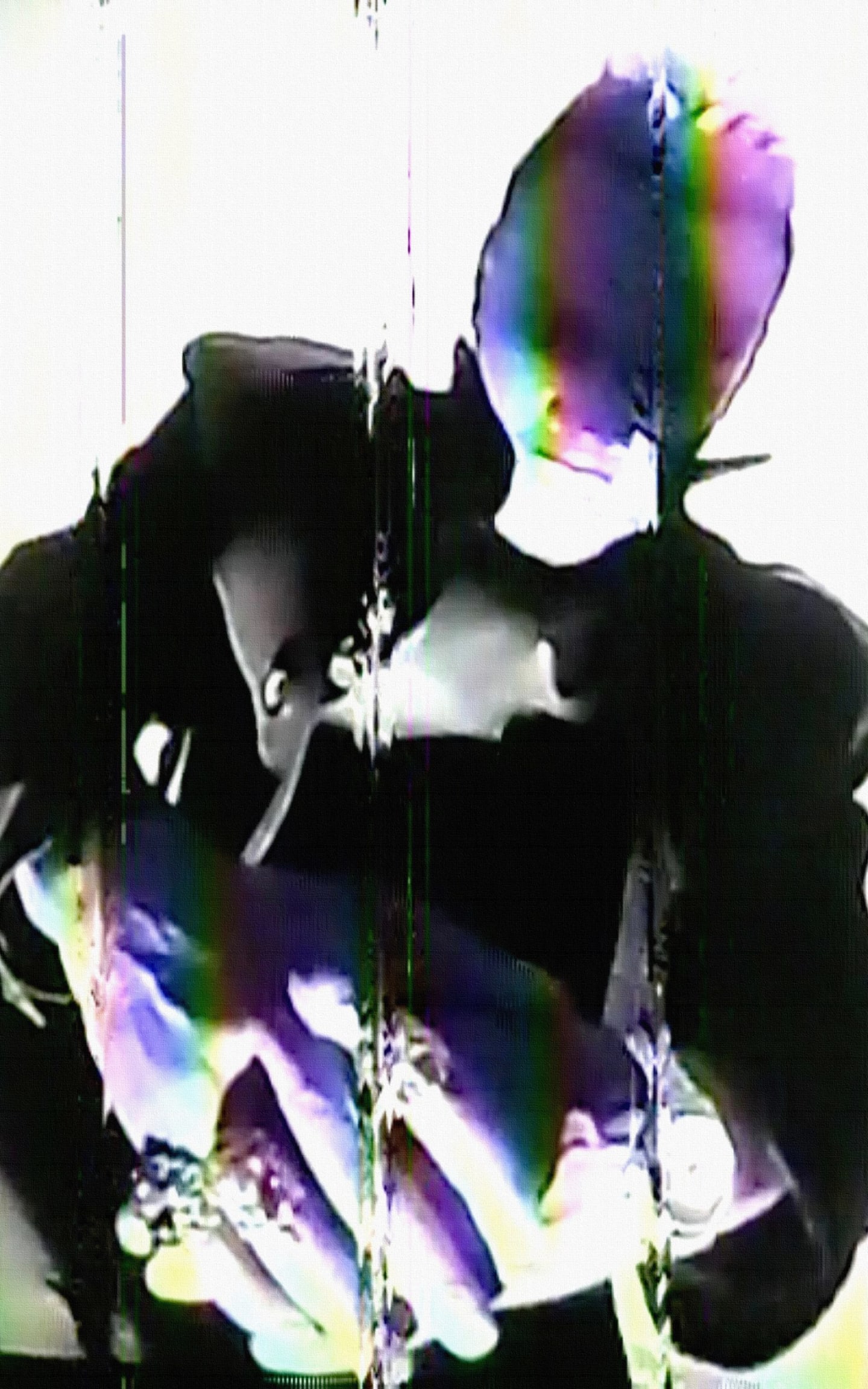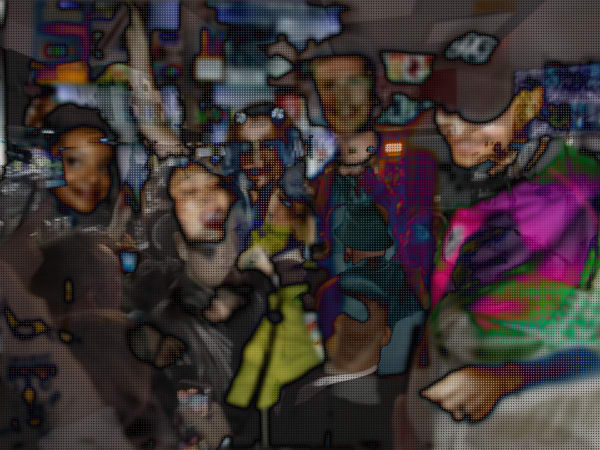

Actress Lets Light Through the Cracks
On 'Karma & Desire,' the inimitable UK artist mixes classical influences, crushed drum machines, and for the first time, vocals into a singular vision.
Detroit techno, grey, chamber orchestras, depth
Mid Notes
Suspension, car stereos, film noir, steam
Base Notes
An ambitious full length that adds vocals to the experimental producer’s expanding repertoire, folding them into his signature scuzzy aesthetic
Machine learning algorithms can, theoretically, be taught to reproduce anything, if you feed them enough data to “learn” from. But anyone who’s looked into art or music generated by AI knows the strange, uncanny valley that emerges when an algorithm tries to replicate human creativity. It’s off, but in an unplaceable kind of way.
Karma & Desire, the first official Actress album in three years, sees the experimental techno artist elaborating on everything he’s done since 2017’s AZD—including his work with the London Contemporary Orchestra and the collaborative EP with his own AI partner, Young Paint—folding these different threads into his rough, monochrome sound resurrected on this summer’s more freeform beat tape, 88 (which writer DeForrest Brown covered in this edition of Top Notes). The tracks on Karma & Desire are more refined than those on the cryptic tape, this album functioning as his more grandiose statement of the year, but they retain that unplaceable feeling not dissimilar to machine learning-generated art.
This element will show content from various video platforms.
If you load this Content, you accept cookies from external Media.
Despite being a predictably slippery listen from front to back, K&D is home to some of Darren Cunningham’s most accessible work, and notably marks his first foray into working with vocals. The album was led by a pair of uncharacteristically direct singles, “Angel’s Pharmacy (featuring Zsela)” and “Loveless (featuring Aura T-09)”, which both wrap their features with the stripped-down warmth of Detroit-influenced techno grooves. And while the former bumps along with floating white noise and bubbling atonal synth arpeggios, the latter’s rolling four-to-the-floor drum pattern and looping earworm vocal sample make it the closest thing to a dance pop hit Cunningham has ever made.
Anyone dismayed that their favorite outsider techno artist may be going pop can rest easy, though. Sure, Actress is using vocals, but most of the lengthy list of features are used more as textural elements than proper hooks. It’s easy to imagine Cunningham smirking as he released a tracklist with three features from chart-topping singer Sampha, knowing the outrage he might cause by dismantling the singer’s recordings and sticking their warped pieces atop his instrumentals like shards of shattered gems.

Karma & Desire interrupts its pop-leaning moments with some of the least accessible moments in its creator’s catalog. Some of the tracks play like AI-improvised piano recordings similar to those on the Young Paint EP or Aphex Twin’s Computer Controlled Acoustic Instruments series. Others recall the blocky, greyscale sonic depression of Ghettoville—arguably Actress’ most polarizing record due to its plodding, barely-moving “architectural” musical approach. (Full disclosure, I really liked Ghettoville). Early standout “Reverand” layers alien speech on top of a gothic synths and lo-fi drum machines that make you feel suspended in the track’s sludgy drama. And “Many Seas, Many Rivers” sits on the same loop for its eight-plus minute runtime, building a deepening sense of dread while Actress pokes holes in his piano’s (and Sampha’s voice) with overdriven bass drops.
Anyone expecting Karma & Desire to be an easy listen will likely be let down. The project pushes you to near exhaustion, yet despite this and the extremes at play across the album, it succeeds in delivering some of Actress’ most emotionally-affecting work. “XRAY”, one of the album’s cinematic highs, finds the artist looking down from the peak of his multifaceted success to a tune of warbling synthetic strings, yet his view from above still feels like a lonely one.
Zach Tippitt is an editor for Electronic Beats. Find him on Instagram.
Published October 22, 2020. Words by Zach Tippitt.








